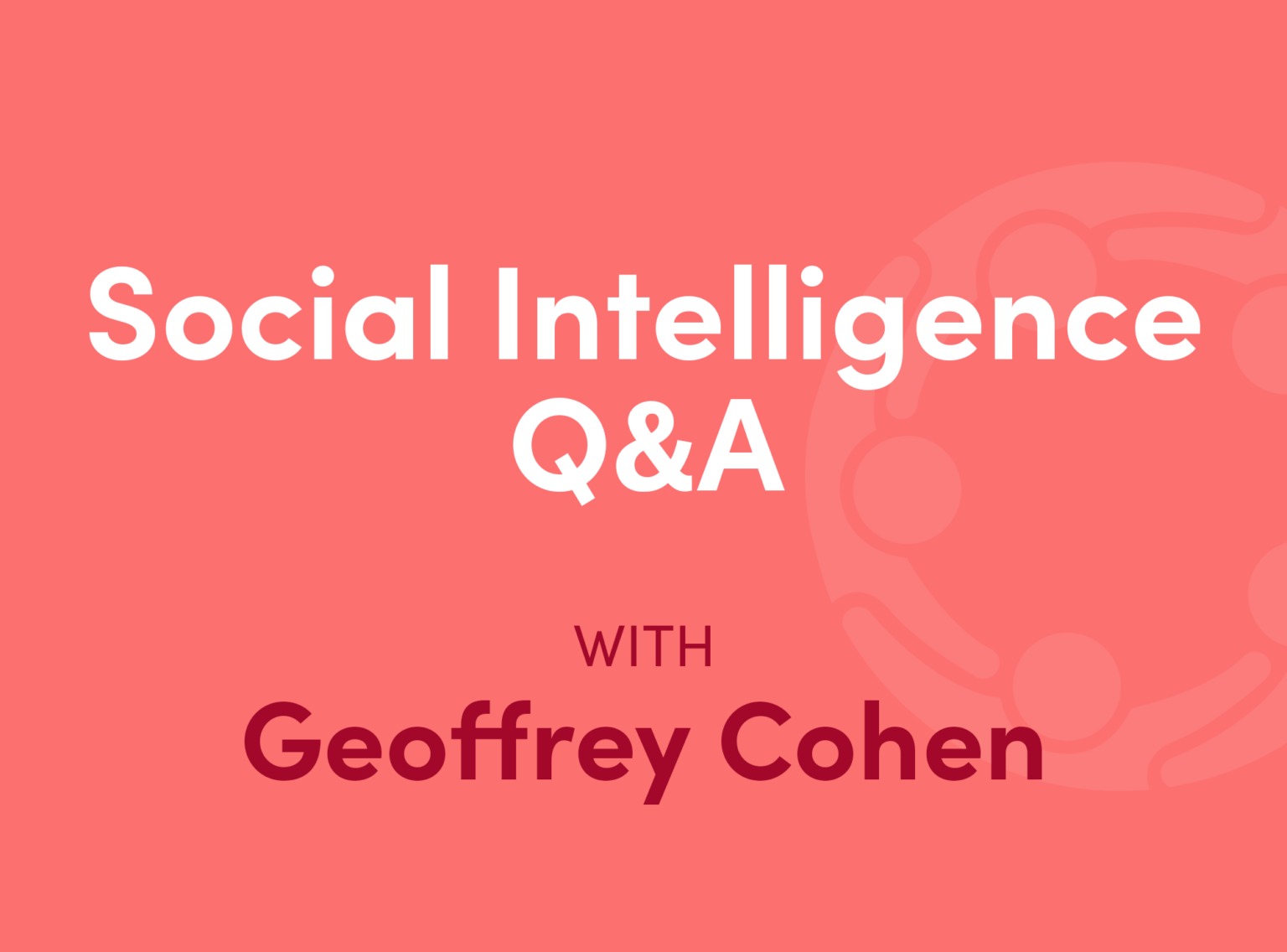Longing to Belong
The psychology of fitting in
2022-9-11 | Social Intelligence

Geoffrey L. Cohen, a professor of psychology at Stanford and the author of the new book Belonging: The Science of Creating Connection and Bridging Divides, talked to us about how to help young people build social intelligence. Here are a few highlights:
Let’s start with a very basic question—why is social belonging so important?
We need other people to survive. As social species, we have evolved to be exquisitely attuned to whether or not we’re included by other people in our group. The need to belong is encoded into our DNA.
How did you get interested in this topic?
I was a shy kid growing up in New Jersey, often feeling a little like an outsider, especially as a teenager. And when you’re an outsider, you start to wonder: Is there a formula to fitting in? Is there something about the clothes I’m wearing? Is there something about how I talk? And when you start to find your tribe—and begin to feel you’re part of a group and have an actual community—it’s magical. I think almost all of us go through this during adolescence.
You’re the parent of two teens.
Yes, they’re 19 and 18 now.
How has your research affected how you raise them?
My own dad was a theoretical physicist, and he seldom disclosed vulnerability. So I thought, oh, he just became a physicist and it was easy for him.
I made a conscious choice not to do that, to make it clear that we all face doubts and we all have our moments of feeling uncertain about ourselves and our belonging.
This is what Greg Walton and I call belonging uncertainty, where we’re not totally sure if we do or we don’t belong. And that can create a mindset that’s pretty debilitating because you’re always wondering, “Do I belong or not?” So you’re perusing the environment for cues either way, which just diverts your attention from learning and growing.
What’s the most important piece of advice you can give parents?
Listen to your kids. A parent’s instinct is to pour information into kids. But when we lecture or criticize teens, they shut down. We also deprive ourselves of the opportunity to learn and connect.
What does work is talking to teens rather than at them. Then you’re better positioned to help them navigate their situation, like a coach. And when bad things happen, they come to you, and you can help them to make sense of it and work through it. I spent a lot of time as a parent listening to my kids and trying to understand their perspectives and the situations that they were dealing with.
If I’m a parent who’s a little worried that my kid is not fitting in so well—what can I do to help? What can I say?
One of the things I told my kids—your years in middle school and high school, they’re just a tiny portion of a huge life. I remember in my own case, it was really easy to feel like this little bit of real estate in time was everything when, in fact, life is very long. Things do change. Things can get better, and you can grow. And so can others.
How? You can put yourself in situations where you are more likely to forge connections with people like you. Choose clubs, choose places where you’re more likely to meet and find people who align with your values.
The most powerful psychological message you can send is: You’re not alone. People go through what you’ve gone through, it’s normal, and things can get better. Things will get better, with time, effort, and strategy—and we’ll get through it together.
We’d love to know your thoughts after reading our Tips of the Week. Check the following boxes if applicable: